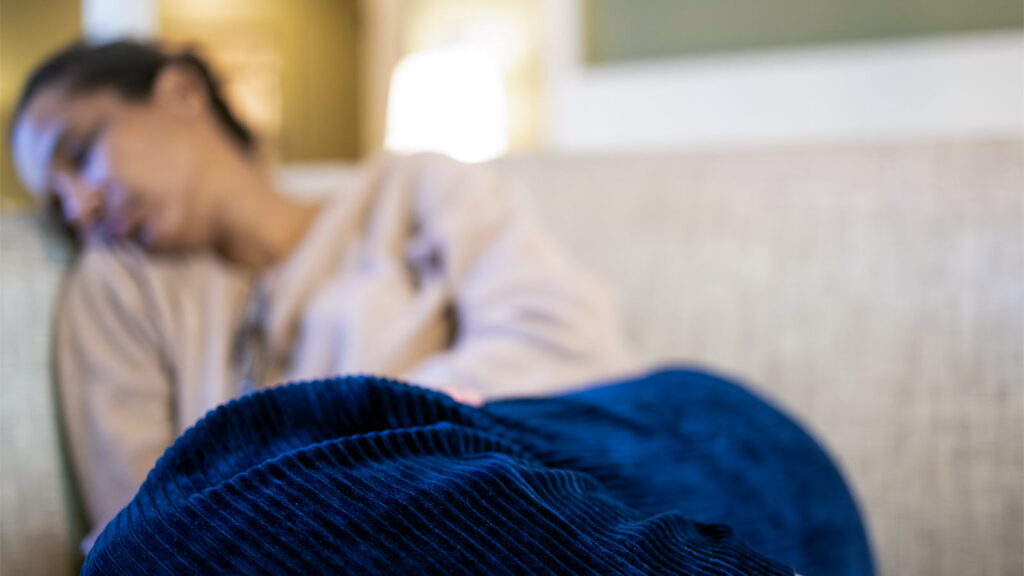
Research published today in Cell Reports Medicine uncovers significant biological differences that may explain why women with long COVID, particularly those developing chronic fatigue syndrome, experience more severe and persistent symptoms compared to men. This new insight could pave the way for targeted treatments, offering hope to millions affected by the condition.
Long COVID, also known as post-COVID-19 condition, is diagnosed when neurological, respiratory, or gastrointestinal symptoms persist for three months or more following an acute SARS-CoV-2 infection. Women are three times more likely than men to develop long COVID, although the reasons for this disparity have remained unclear until now.
Unveiling Biological Mechanisms
The study, led by Shokrollah Elahi, an immunology professor at the Mike Petryk School of Dentistry, suggests potential treatment targets that could benefit the 3.5 million Canadians who reported long COVID symptoms as of June 2023, according to Statistics Canada.
“We are focusing on a subset of patients with the most devastating symptoms that are very similar to chronic fatigue syndrome,” Elahi explains. “They didn’t have these symptoms prior to COVID and most had only mild COVID-19 disease, so they were not hospitalized.”
Elahi’s team conducted blood and genetic tests on 78 long COVID patients one year after their acute diagnosis, alongside a control group of 62 individuals who did not develop long COVID post-infection. The analysis revealed a distinct immune signature in female versus male patients.
Key Findings: Gut and Hormonal Differences
The research identified signs of “gut leakiness” in female patients, including elevated levels of intestinal fatty acid binding protein, lipopolysaccharide, and soluble protein CD14 in the blood—markers of gut inflammation that can trigger systemic inflammation.
“This suggests that probably at the earliest stage of disease when patients get acute SARS-CoV-2 infection, there is a tendency that the females’ guts are more prone to viral infection,” Elahi says.
Additionally, the study found lower red blood cell production or anemia in women with long COVID. This suggests that elevated inflammatory factors adversely affect blood production in these patients.
The researchers also discovered dysregulated sex hormones, noting reduced testosterone levels in affected women and decreased estrogen in male patients, alongside lower cortisol levels in both genders. Women with lower testosterone experienced higher inflammation, linking hormone imbalances to symptoms like brain fog, depression, pain, and fatigue.
Comparisons and Broader Implications
These findings align with characteristics of myalgic encephalomyelitis/chronic fatigue syndrome (ME/CFS), which also disproportionately affects women. While anemia is not associated with ME/CFS, chronic inflammation is a common trait. Another international study of over 500 patients supports Elahi’s findings, identifying anemia as a key biological factor in long COVID.
Elahi plans to further verify his findings through potential treatments in mice with long COVID and seeks funding for clinical trials. He advocates for individualized treatment approaches based on patient-specific test results, potentially involving anemia treatments, anti-inflammatory drugs, and hormone therapies.
Future Research and Collaborations
Elahi aims to explore the neurological similarities between long COVID and HIV infections further. The research, funded by the Canadian Institutes of Health Research and the Li Ka Shing Institute of Virology, involved several co-authors, including post-doctoral fellow Shima Shahbaz, assistant professor Mohamed Osman, and others from the University of Alberta.
Elahi and Osman are affiliated with the Li Ka Shing Institute of Virology, the Women and Children’s Health Research Institute, and the Cancer Research Institute of Northern Alberta. Elahi is also a member of the Glycomics Institute of Alberta and the Alberta Transplant Institute.
This groundbreaking research not only sheds light on the biological underpinnings of long COVID but also lays the groundwork for more effective, personalized treatments, offering hope to millions of women worldwide grappling with the long-term effects of COVID-19.






